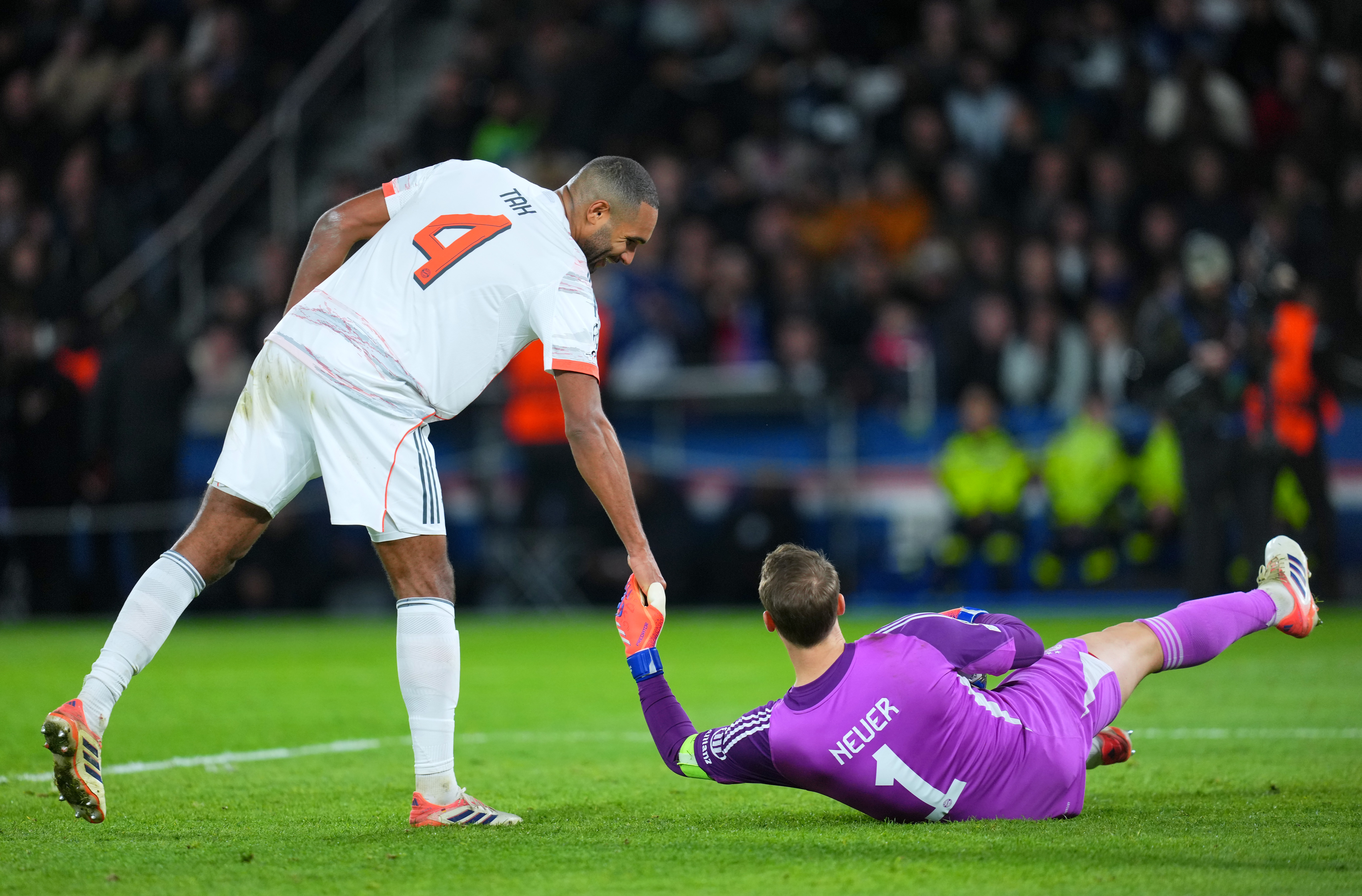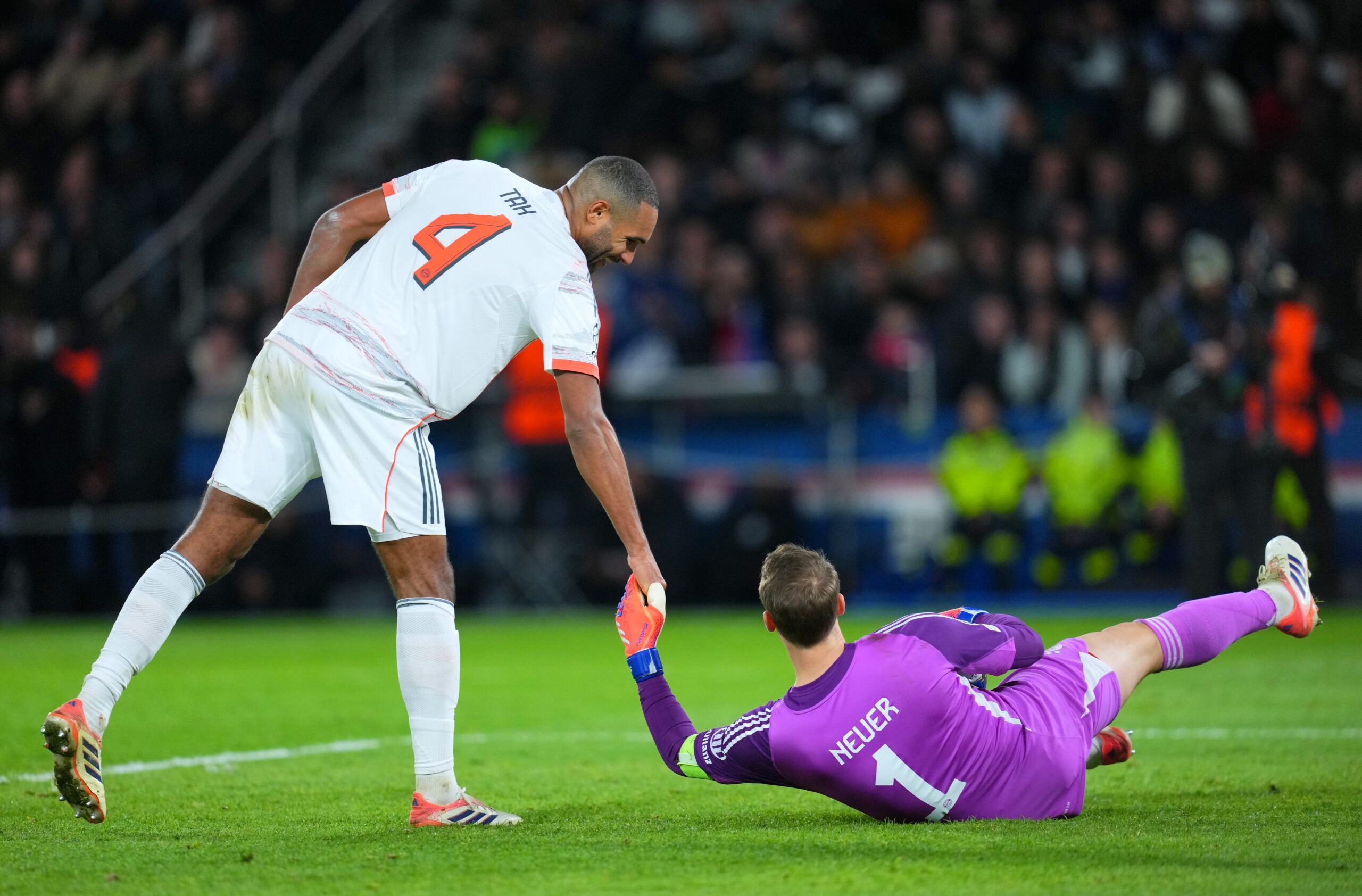Bayern Munich’s Victory Over PSG: A Divine Intervention That Exposes the Fragility of European Football’s Elite
Bayern Munich’s recent triumph over Paris Saint-Germain (PSG) in the UEFA Champions League showcased not only the Bavarians’ tactical prowess but also raised questions about the long-standing dominance of elite clubs in European football. The match, characterized by intense competition and dramatic moments, was a microcosm of the broader themes of power, resilience, and vulnerability that permeate the sport today.
From the outset, Bayern Munich demonstrated a commanding presence, dictating the pace and flow of the game on PSG’s home turf. The first half was a testament to Bayern’s strategy and execution, with Jonathan Tah and his teammates displaying a blend of aggression and precision that left PSG struggling to find their footing. The Bavarians created numerous scoring opportunities, capitalizing on their opponents’ defensive lapses, which has become a hallmark of their recent performances in the Champions League.
However, the turning point of the match came with the controversial red card issued to Luis Díaz, which forced Bayern into a defensive posture. This moment not only shifted the dynamics of the game but also highlighted a critical aspect of modern football: the ability to adapt under pressure. Jonathan Tah, reflecting on the match, emphasized the importance of resilience. “We had to suffer and defend with 10 men. We couldn’t press them high. There are always such moments in a season where you have to sit deep and defend. Today we showed that we can also do that.” This acknowledgment of vulnerability is significant, as it underscores the shifting landscape of European football, where even the most dominant teams can find themselves on the back foot.
The psychological and tactical implications of the red card cannot be overstated. In high-stakes matches like this, the mental fortitude of a team is tested, and Bayern’s ability to withstand PSG’s attacking onslaught in the second half speaks volumes about their character. The game became a battle of wills, with Bayern having to rely on their defensive organization and the heroics of their goalkeeper to preserve their lead. This defensive resilience is often overlooked in discussions about football, where attacking prowess tends to dominate narratives. Yet, it is moments like these that define championship-caliber teams.
As Bayern prepares for their next match against Union Berlin, the focus will undoubtedly shift to maintaining this momentum. The upcoming international break will provide a brief respite, but the challenges ahead, including a clash against SC Freiburg and the highly anticipated match against Arsenal, loom large. Each of these encounters will test Bayern’s depth and adaptability, especially in light of the physical and mental toll that matches against top-tier opponents can exert on players.
The victory over PSG is not just a feather in Bayern’s cap; it is a statement about their intent to reclaim their status as one of Europe’s elite clubs. The implications of this match extend beyond the scoreboard. It raises critical questions about the sustainability of PSG’s model, which has relied heavily on star power and financial investment. While they boast a roster filled with some of the world’s best players, the defeat at home against Bayern reveals a fundamental flaw: the inability to perform under pressure when it matters most.
This dynamic is reflective of a larger trend in European football, where traditional powerhouses are increasingly challenged by teams that embrace a more holistic approach to the game. The rise of tactical flexibility and the emphasis on teamwork over individual brilliance are reshaping the competitive landscape. Bayern’s victory serves as a reminder that while star players can win games, it is often the collective effort that leads to championships.
In the aftermath of the match, discussions will likely center around Bayern’s tactical decisions, particularly their starting XI. Who stood out, who struggled, and how did the substitutions impact the game? These analyses are crucial for understanding the nuances of the match and the strategic decisions made by the coaching staff. The intricacies of player performance and tactical adjustments are what make football a compelling sport, and Bayern’s approach against PSG will be scrutinized as they prepare for future challenges.
Moreover, this victory can be viewed as a catalyst for a broader conversation about the financial disparities in football. The investment in talent, infrastructure, and youth development plays a significant role in shaping the fortunes of clubs. Bayern’s ability to compete with financially potent teams like PSG speaks to their successful model, which balances financial prudence with strategic investment in talent. This balance is essential for long-term sustainability in a sport increasingly dominated by wealth.
As Bayern Munich continues to navigate the challenges of the season, their recent victory over PSG will serve as a reference point for both players and fans. It embodies the spirit of resilience and determination that characterizes the club’s history. The ability to adapt, defend, and ultimately prevail in the face of adversity is what sets elite teams apart from their competitors. In a sport where the margins are razor-thin, Bayern’s triumph is a powerful reminder that greatness is not just about talent; it is about heart, strategy, and the will to succeed against all odds.
The implications of this match will resonate throughout the season as Bayern Munich aims to solidify their position at the top of European football. With a blend of experience and youth, they are poised to make a significant impact in both domestic and international competitions. The journey ahead will undoubtedly be fraught with challenges, but the lessons learned from their victory in Paris will serve as a guiding light as they strive for glory.

For at least the first half of the match, Bayern Munich completely dominated Paris Saint-Germain in their backyard. A red card to Luis Díaz meant that Bayern had to focus on defending their lead, a feat which they managed to achieve. Jonathan Tah played his part in the defeat of the European champions and gave his thoughts on their mission in Paris.
“We started the game with a lot of intensity and had many chances,” Tah began (as captured by Twitter account @iMiaSanMia). “The first half was outstanding. In the second half we had to suffer and defend with 10 men. We couldn’t press them high. There are always such moments in a season where you have to sit deep and defend. Today we showed that we can also do that.”
Bayern plays one more match — Union Berlin at the weekend — before another international break halts club football action. Upon returning, the Bavarians play SC Freiburg before a monster clash against Arsenal.
Bayern Munich pulled out a wild 2-1 victory in a game that will be talked about quite a bit. So, why don’t we kick it off. This is what we have on tap for this edition of the Bavarian Podcast Works — Postgame Show:
- A look at Bayern Munich’s starting XI selections…who stood out, who struggled, and more.
- A rundown of the scoring and substitutions as we walk through the flow of the match.
- Some final takeaways on the match.
Also, be sure to stay tuned to Bavarian Podcast Works for all of your up to date coverage on Bayern Munich and Germany. Check us out on Patreon and follow us on Twitter @BavarianFBWorks, @BavarianPodcast @TheBarrelBlog, @BFWCyler, @2012nonexistent, @TommyAdams71 and more.

